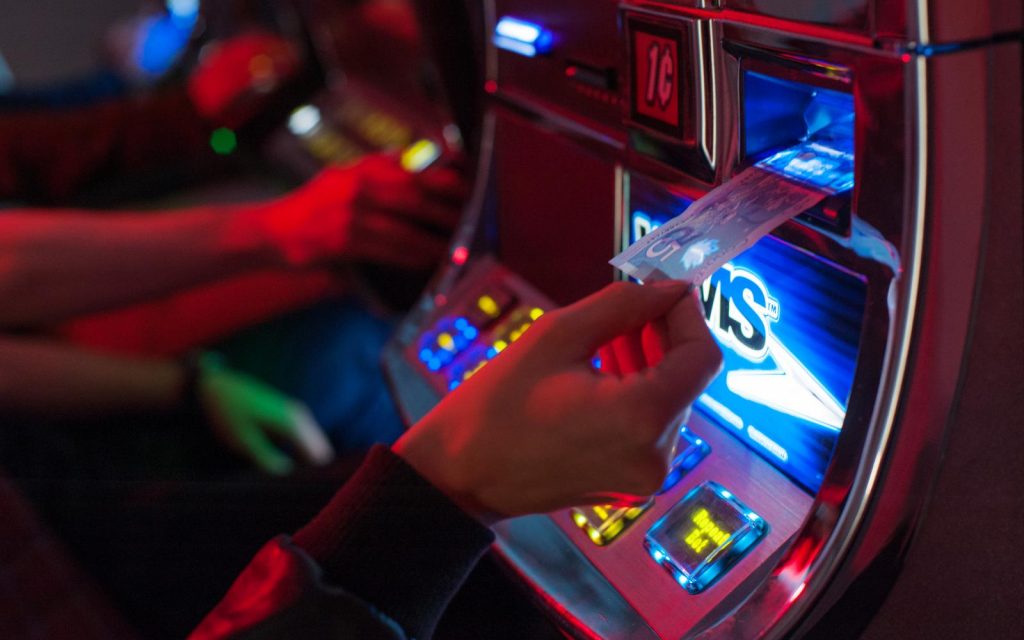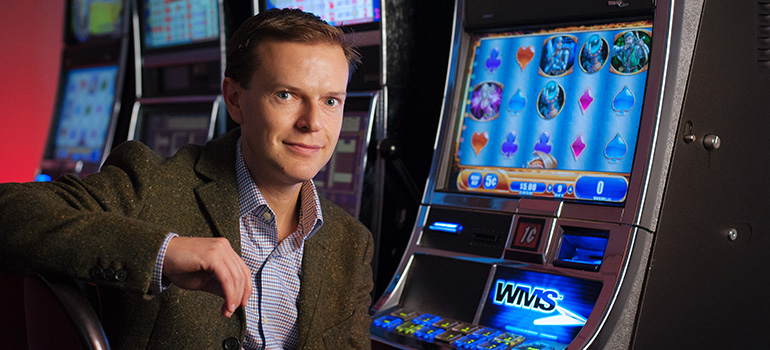

The Centre for Gambling Research at UBC is featured on the University of British Columbia’s new Research & International website research.ubc.ca
Just. One. More. Time. And then again and again…and sometimes with devastating consequences. What causes a gambling addict to make the impulsive decisions that can potentially ruin their lives?
That’s a question for Dr. Luke Clark, the inaugural director of UBC’s Centre for Gambling Research, who studies what happens in our brains when we gamble. His research into why problem gamblers take the risks they do will ultimately help inform public policy around gambling regulations.
The centre—one of only a handful of such research hubs in the world—was established in 2014 with financial help from the BC government and BC Lottery Corporation.
Clark, a global expert on the subject, was recruited in the department of Psychology from Cambridge, England, where, among other accomplishments, he completed a landmark study on why so-called “near misses” prompt some people to keep on gambling. His appointment further enhances UBC’s standing as a world-class centre for addictions research.


Dr. Luke Clark, director, Centre for Gambling Research at UBC
“Gambling research is at a crossroads,” he says. “The negative consequences of problem gambling are severe. People find themselves with huge amounts of debt and disruption to their day-to-day functioning—their ability to hold down a job or complete their education, for example. This affects not only themselves but everyone around them.”
Since 2010, Clark has worked closely with the UK National Problem Gambling Clinic, recruiting pathological gamblers seeking treatment across a range of research projects. One line of work has focused on neurocognitive measures of impulsivity and compulsivity—work that he continues today at the centre.
With an on-site “casino lab” complete with slot machines and other games, Clark uses interviews, behavioural observation and measurement of physiological responses to record massive increases in heart rate and skin conductance levels when players get jackpot wins—or miss by a hair’s breadth. Even their fingertips sweat—from excitement, anticipation and frustration.
The centre provides the perfect opportunity for Dr. Clark to work collaboratively with other disciplines, such as neuroscience and psychiatry, and with experts from within the university and throughout the province.
“This facility will transform gambling research in British Columbia,” he says. “Our work will help us better understand the psychology of gambling games and problem gambling, which will ultimately result in healthier communities.”
This story originally appeared on UBC’s Research & International website as part of a spotlight on UBC’s leading research on brain health. The Department of Psychology thanks the Research & International Office for crafting the narrative in this feature story.


